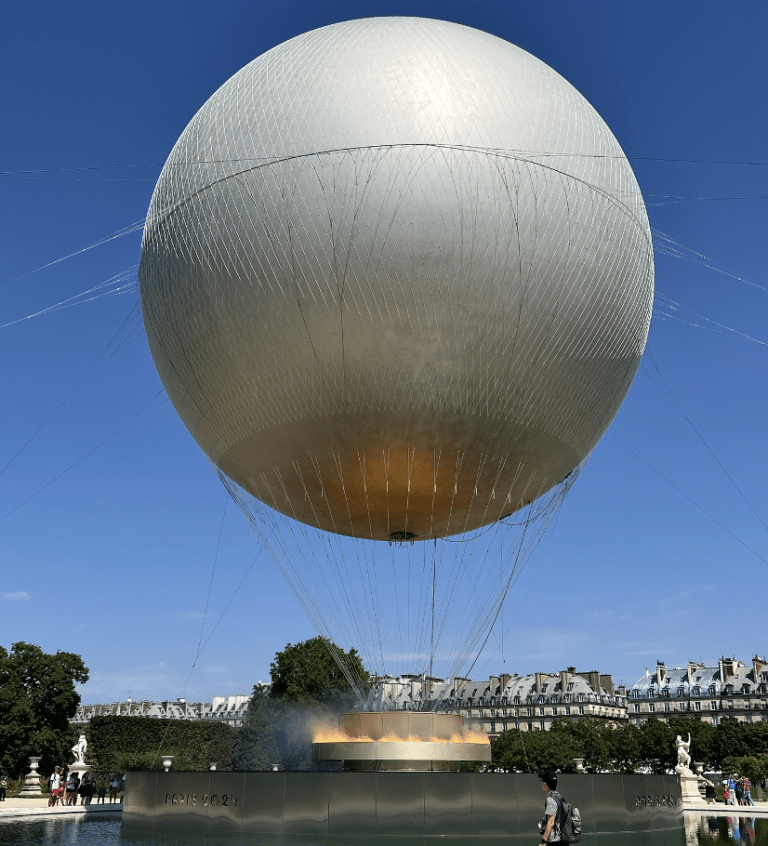Paris 2024: Setting the Gold Standard for Sustainability

The Paris 2024 Olympics have not only been a showcase of athletic excellence but also a landmark event in the pursuit of sustainability. These Games have set new benchmarks in environmental responsibility, demonstrating that large-scale global events can be both spectacular and sustainable. By focusing on renewable energy, particularly solar power, and implementing innovative solutions throughout its infrastructure, Paris 2024 has significantly reduced its environmental impact. The legacy of these Games extends beyond the event itself, offering a blueprint for future Olympics and other major events to follow.
Fireless Olympic Flame…?
The Olympic flame has always been fire—until Paris 2024 decided to mix things up. This year, they created a flame out of mist and light, basically turning water into fire! The result? A mesmerising “ring of fire” that’s as eco-friendly as it is symbolic, proving that even a flame can go green.
Lifted by a balloon 200 feet into the air, this stunning display symbolised sustainability and honoured France’s rich aviation history, taking inspiration from the first manned hot air balloon flight in Paris in 1783—an event that marked the dawn of human flight and innovation.

100% Renewable Energy Usage
Paris 2024 successfully covered 100% of its electricity needs with renewable energy sources. Solar power played a significant role, ensuring that the event was powered sustainably from start to finish.
Solar Panels at Aquatics Centre
The solar panels installed on the roof of the Aquatics Centre provided around 20% of the venue’s electricity needs. This practical application of renewable energy helped significantly reduce the carbon footprint of one of the event’s major venues.
Photovoltaic Carport Installation
A photovoltaic carport, spanning nearly 1,000m², was set up at the Olympic Village’s bus station. This installation provided self-generated electricity to the international delegations’ reception and information centre, showcasing the effectiveness of solar energy in everyday operations.
Floating Solar Farm on the Seinea
A 400m² floating mobile solar farm on the Seine produced enough energy to meet the consumption needs of around 30 two-bedroom apartments in the Olympic Village. This innovative, temporary installation highlighted the potential of solar technology and was designed for reuse after the Games.
Reduction in Lighting Energy Consumption
By implementing energy-efficient lighting solutions, Paris 2024 achieved an 80% reduction in energy consumption compared to standard lighting systems. This significant cut in energy demand contributed to the overall sustainability of the event.
50% Carbon Footprint Reduction
The Games achieved a 50% reduction in their carbon footprint compared to previous Olympics. This was accomplished through the use of existing infrastructure, the construction of temporary venues with materials repurposed post-Games, and other innovative measures.
Legacy of the Olympic Village
After the Games, the Olympic Village was transformed into a thriving residential and business area. It now offers homes for 6,000 people and provides jobs for another 6,000, ensuring that the infrastructure continues to benefit the local community long after the event.
The Paris 2024 Olympics have demonstrated that it is possible to host a world-class event with a minimal environmental impact. By leveraging renewable energy, particularly solar power, and implementing innovative sustainability measures, Paris 2024 has set a new standard for future global events. The Games have shown that with careful planning, collaboration, and a commitment to doing “less, better, and for longer,” large-scale events can leave a positive legacy that benefits both the environment and the community. As we look back on these historic Games, we can look forward to a future where sustainability is a central focus of every major event, inspired by the achievements of Paris 2024.